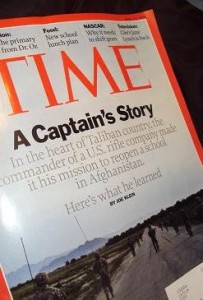In my quest to fly home from England yesterday, it was all bad news. Traveling on a Buddy Pass given to me by Nelson’s friend Kevin, I’d flown to England on a flawless connection. Kevin had assured me I’d get on, and I had.
When Hans and I pulled up to the Manchester airport early Tuesday, we hugged our goodbyes, and I walked into the airport with confidence. There had been 20 open seats on my flight, one of two daily Delta departures for the States. The queue was long, and as I stood with literally hundreds who were ticketed for the same plane, my nerves came awake.
The friendly agent saw my Buddy Pass status and said, “Oooo, ma’m. It doesn’t look good for you today. The flight is overbooked, and you’re at the bottom of the standby list. We won’t check your bag, because more than likely you won’t fly today.”
I’d stayed up till 1:15 am packing and had disrupted Hans’ work day needing a lift to the airport. To call an hour after he’d dropped me with a request that he return was unacceptable. And would it be any better tomorrow?
“Take your bags and find a place to wait,” the agent said. “Come back in an hour, and we’ll let you know.”
“Is there any hope?” I said.
“It’s always best to hope,” he said.
I wheeled my bags across the airport in search of an empty chair and plopped down next to a young woman who had an even bigger luggage pile than I did. The tags on her suitcases matched mine, iridescent green with block letters: DELTA STANDBY TAG. We were both after the same empty seat on the same crowded flight. With a friendly smile she said, “None of us could have predicted British Airways would go on strike this morning…”
So that was where the seats had gone. Feeling powerless, I sat and stared at the passing masses, each one anxious to fly away to someplace. I prayed for those walking by and also reminded God he’d promised to go ahead of me and prepare my way, too.
An hour later, I took my bags back to the counter, “Mr. Hope” was gone, but the woman in his place had surprising news. “Put your suitcase on the scale. You’re listed on the flight.” I didn’t even ask.
As I rushed through the airport to find my gate, loudspeakers were urging passengers to heed “the final call” for boarding. My last stop was to receive a seat assignment, worrying me I could still be plucked from the passenger list. But the agent handed me my boarding pass with a smile. “Here’s your seat now, love.”
I didn’t look at it but lined up behind the last boarders, heeding earlier counsel: “It’s always best to hope.”
With six minutes until push-back, the staff was urging people to find their places quickly. The stewardess at the door glanced at my boarding pass and said, “Oh. You’re right here.”
First row. First seat. First class!
Mine was the last empty seat on the plane, and as I sat down, anxiety melted. The cross-Atlantic flight was the most pampered ride of a lifetime with a bed-sized pillow, a down blanket, gourmet meals chosen from a menu, my own TV and a snap-shut travel bag filled with goodies. The other woman had made it on, too, neither of us knowing how it had happened. I have a hunch, though.
Kevin’s email yesterday (giving me the Buddy Pass data) had ended with this line: “We’ll be praying for you to get on, and to get a seat in first class.”
When there had been no way, God had made a way, proving the ticket agent was right: it’s always best to hope.
”Many that are first shall be last; and the last shall be first.” (Matthew 19:30)





